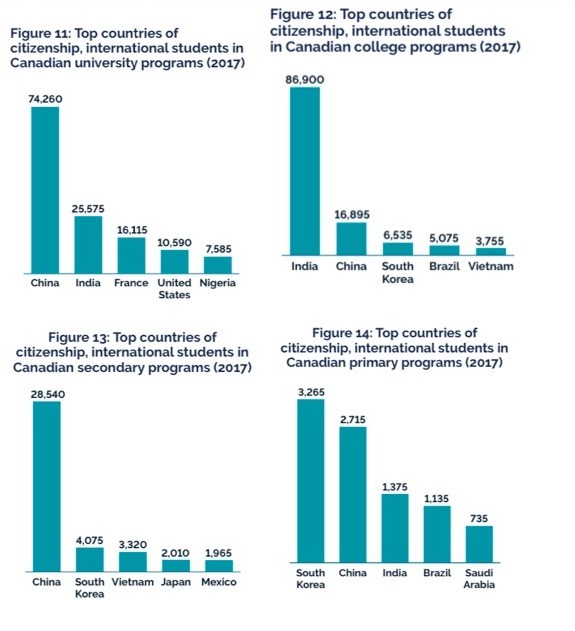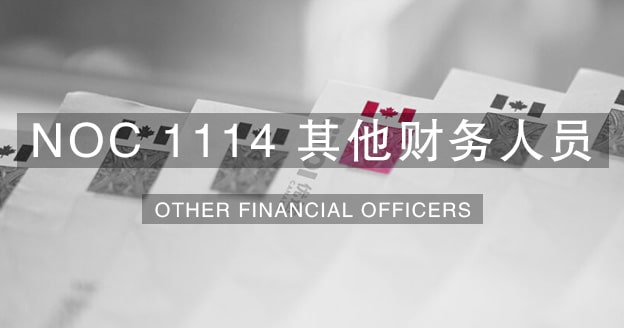According to the statistics of the Canadian Bureau for International Education in 2019, the number of international students who chose to come to Canada for elementary and secondary schools has basically accounted for one third of the total number of international students. There seems to be a growing trend of children studying abroad in the recent years. This article will talk about the advantages of studying abroad at a young age, and the important aspects that need to be considered.
Language acquisition and cultural integration
The sooner you go abroad, the more native your oral English can be. After all, learning a language is not all about memorizing grammar rules or writing answers to questions, but it is gradually developed in daily communication. Living in an English environment can guarantee improvement to your English level. Even if you do not have a solid foundation of English, the relaxed and friendly atmosphere of elementary and secondary schools can stimulate children to communicate. There is no doubt that children studying abroad can benefit in terms of language learning, so we need not say more.
Students who come to study at the undergraduate and graduate level often have difficulties mingling and socializing with local students. One of the reasons is that they have trouble expressing themselves orally. Not having common interests is the biggest obstacle in communication. The twelve years in elementary and secondary schools are the main stages of developing personal interests. During this period, you pick up skills and take up hobbies similar to your peers; for example, you might have read the same books, watched the same movies and TV series. These can become common topics for discussion with your classmates. If your English is not good, you can study to improve; but how can you make up for all the life experiences that you have missed if you arrive late? Should you catch up on the "Star Wars" movies or study your lecture notes? You need to make a choice. In all, the benefits of studying abroad in elementary and high schools are obvious, because the bond between you and your peers is naturally formed, and with common interests, "integration" is definitely not a problem because you would already be part of the group.
Benefiting from the advanced elementary education concepts
Canadian elementary education attaches great importance to the comprehensive training of students. In the eyes of many Chinese parents, they would complain that the concept sounds too fancy, and the academic expectations are too low. This is only half right, because there is a difference between elementary education and further education. The purpose of going to elementary and secondary schools is just to get into university. University is only an option. Of course, people who get a job immediately after graduating from high school do not need to compete for high grades and scores. However, if they choose to go to university, they will have to work hard in their studies. If you want to go to a prestigious university in China, you have to fight the battle that is the college entrance examination. In Canada, you do not necessarily have to work hard to get into an ideal university. Your report card from the last three years of high school will be a reference of your comprehensive assessment. So, which is more difficult? One year of intensive studying without a break or three years of hard work with breaks in between? Everyone has their own judgment. In short, the concept of Canadian primary and secondary education is to provide students with choices, while teachers are responsible for the cultivation of basic skills and abilities. On top of this, you can develop your interests in all aspects, and at the same time, advance in your studies.
Now, let's talk about the reasons why some people may consider Canada's elementary education too "fancy". They are probably referring to the vibrant classrooms, the variety of extracurricular activities and the requirements for community services.
When you come to Canada for an undergraduate program, the first thing you need to learn is how to complete assignments in groups. This kind of task is not common for Chinese students. In elementary and secondary school, the projects assigned by the teacher will require students to work in groups. The main purpose is to cultivate students' ability to cooperate, lead, organize and coordinate with others.
Extracurricular activities in China's elementary and secondary schools are also other forms of “classes.” Therefore, the fun that should have been had is drowned out by the dullness of this traditional classroom standard. Meanwhile, Canadian elementary and secondary school students often do not explore their interests and hobbies by spending money on lessons outside of school, because there are various activities available in the school, providing students with a broad platform to try out different hobbies.
Obtaining a high school diploma not only requires course credits, but also hours of volunteer work. On the one hand, serving the community is a part of Canadian culture. On the other hand, it also requires students to go out and explore, get to know the society around them, and reach out to different people.
Seamless integration with Canadian higher education
For students who are interested in studying for their undergraduate or even master's degrees in Canada, having the graduation certificate and transcript from their high school in Canada allows for easy applications to universities. It also means that you will not be required to get English proficiency test results. Secondly, there is no need to submit notarizations of graduation certificates, transcripts, etc.
More importantly, familiarity with the education system allows students to have an idea of the university life that lies ahead. They will be able to understand the course selection process, homework requirements, and test formats. Unlike Chinese students who have completed high school in China and left for their undergraduate studies in Canada, starting here early means you will be better prepared.
Possibility of reverse-culture shock
Most young students who study abroad do not choose the path for themselves. Instead, the parents often make the decision and arrangements for their children to study abroad. Whether it is your choice or not, the experience of your life abroad is a beneficial for your personal growth. However, it must be acknowledged that many international students will eventually choose to return to China, and "excessive" adaptation to the foreign environment may cause them to have difficulties adapting to their home country upon return. Young children and local Canadian students have developed a bond, which often means that they have grown apart from their peers back home. Adaptation to the Canadian environment and their ways to communication also means that you have to readapt the rules of the Chinese society. You need to make appropriate adjustments to your identity and the way you deal with others.





